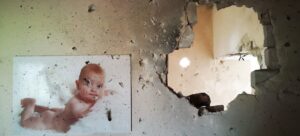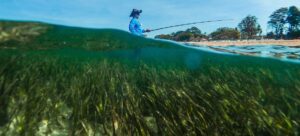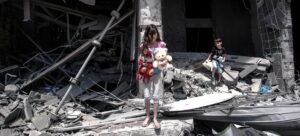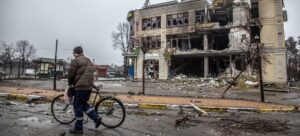“The cycle of death, destruction, dislocation, and disruption must stop”, underscored Rosemary DiCarlo.
Depravity of war
Amidst a new wave in recent days of missile and airstrikes in Kyiv, Chernihiv, Odesa, Mykolaiv, Kharkiv and other cities far from the frontlines, the senior UN official drew attention to the missile strike in Kremenchuk on a shopping mall, reportedly by Russia, that killed at least 18 civilians and injured 59 others.
She warned though that “the final toll may be much higher”.
The most intense fighting now is in and around the towns of Sievierodonetsk, Lysychansk and Sloviansk in the Donbas, and also reportedly around the cities of Kharkiv and Kherson.
“In scenes reminiscent of the World Wars, large-scale artillery duels are devastating industrial areas, with thousands of civilians forced to hide in basements or to flee for their lives,” said Ms. DiCarlo.
“Large military casualties are claimed on both sides”.
‘Too high a price’
“Civilians continue to pay too high a price in this war,” she continued, telling ambassadors that as of 26 June, the UN human rights office (OHCHR), has recorded 10,631 civilian casualties in the country – 4,731 dead and 5,900 injured.
She said that these figures are based on verified incidents and the actual numbers are “considerably higher”.
Most were caused by explosive weapons with a wide impact area, many of which are inherently indiscriminate when used in populated areas increasing casualties and devastating humanitarian impacts, she added.
Probing crimes
The UN Commission of Inquiry on Ukraine reported back earlier this month its first mission to the country, including to Bucha, Irpin, Kharkiv and Sumy.
Though only in the initial stages of its work, she said that the Commission received information and visited sites that “may support claims that serious violations of international human rights law and international humanitarian law, perhaps reaching war crimes and crimes against humanity, have been committed”.
The Commission, the Prosecutor of the International Criminal Court and other fact-finding efforts, are “essential” for establishing accountability for the crimes and atrocities being committed.
“This work must lead to justice…if we hope to be able to prevent such violations in the future, wherever they threaten to occur,” underscored Ms. DiCarlo.
Perilous conditions
Although more than 8.8 million people across Ukraine have received some form of humanitarian assistance and protection services, at least 16 million need aid.
Meanwhile, humanitarian partners are working on a winterization assistance plan and extending the Flash Appeal to provide support until the end of 2022.
And when it comes to health, safety, and access to food, the political affairs chief said that women in particular, were facing immense hardship.
She cited a Rapid Gender Analysis by UN Women and anti-poverty and injustice NGO, CARE, that explained how they are increasingly becoming heads of households and leaders in their communities as men are conscripted.
“They must be included in formal decision-making processes related to humanitarian efforts, peace-making, and other areas that directly impact their lives,” she spelled out.
At the same time, the World Health Organization (WHO) has now recorded 323 attacks on healthcare facilities and personnel, resulting in 76 deaths.
“We strongly remind all parties of their obligations under international humanitarian law: All adequate measures must be taken to protect civilians and civilian infrastructure,” underscored Ms. DiCarlo, in her first briefing to the Council for ten weeks.
Displacement
Since the start of the Russian invasion, more than a quarter of Ukrainians, or 12 million people, have been forced from their homes.
And within the country, over 7.1 million remain displaced.
The UN refugee agency, UNHCR, estimates that over 5.2 million have taken refuge across Europe and over 3.5 million Ukrainian refugees have registered for temporary protection or similar national protection schemes on the continent.
Long-term recovery
Given the conflict’s increasingly protracted nature, Ukraine’s long-term recovery and rebuilding needs must also be considered now, she urged.
She said the Council that the UN Development Programme (UNDP) has launched a Resilience and Recovery Programme to support the Government’s emergency response, help keep the economy running and help assess priority needs.
Beyond the borders
The war is having devastating consequences on Ukraine, the immediate region, and far beyond its borders.
On top of the COVID-19 pandemic and climate change, price shocks in the global food, energy and fertilizer markets are escalating.
“To address this multi-dimensional threat, strong political will across the multilateral community and a comprehensive approach is foremost necessary,” said the political affairs chief. “For the sake of Ukraine, Russia, and the entire world”.
Expel Russia from UN urges Zelenskyy
Speaking via video teleconference, Ukrainian President Volodymyr Zelenskyy argued that Russia’s actions in his country had now made it a “terrorist State” that should be expelled from the United Nations.
Acknowledging that the Organization does not have a legal definition of what constitutes a “terrorist State” he stressed that the Russian invasion of Ukraine “demonstrates not only the meaning of this notion, but also the urgent need to enshrine it legally”.
“Russia has no right to take part in discussions and votes on the war against Ukraine” in the Security Council, he said, urging ambassadors “to rid the delegation of the terrorist State”.
Full-scale aggression
President Zelensky highlighted Russia’s “full-scale war of aggression”, saying that in the Kremenchuk shopping centre blast, dozens were still missing, and that it was inconceivable that the Russians could have been unaware it was “a regular shopping centre”.
He invoked the names of several dozen civilians killed he said by Russian fire, ranging in age from three months to 68, all across Ukraine, and concluded by asking for a moment of silence to commemorate the tens of thousands of innocent people killed.
He said it was essential, to prosecute Russia at the “global level”.
Russian rebuttal
Russia’s First Deputy Permanent Representative, Dmitry Polyanskiy argued that his country simply was not striking civilians or civilian infrastructure, during its special military operation in Ukraine.
He urged the Council to take heed of what he said were eyewitness accounts, which would confirm that a strike on an apartment building in Kyiv on Monday, was not the result of a Russian cruise missile, but of two unsuccessful Ukrainian operations that led to the shooting down of “their own anti-aircraft missiles”.
Moreover, the Russian ambassador argued that the West supplying weapons to Ukraine, only serves to prolong the “criminal regime” in Kyiv.
























